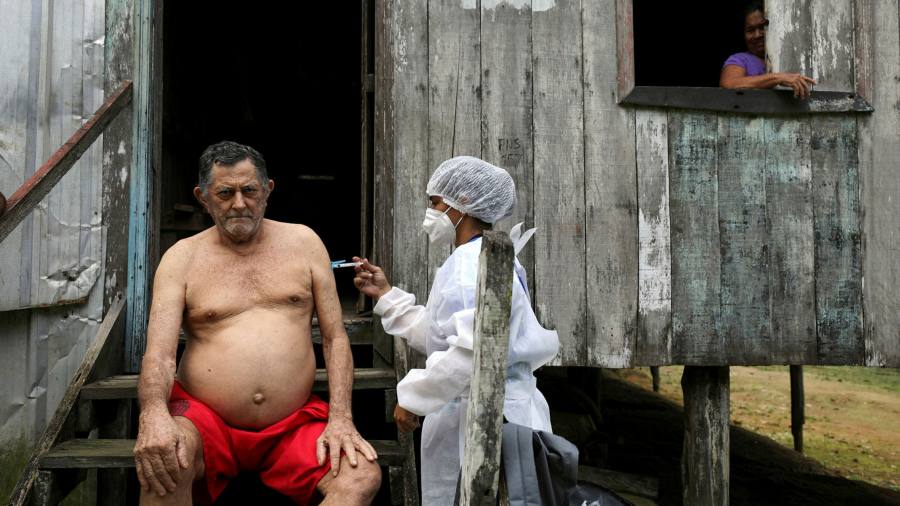[ad_1]
The two biggest developments since the onset of the Covid-19 pandemic occurred within weeks of each other late last year. One was the arrival of effective vaccines. The other was the emergence of virus variants that threaten to defeat them. A global race is now under way between the two. Which comes out on top will determine when — or if — the virus can truly be tamed. And the race will not be properly won unless it is won all around the world.
This week brought good and bad news. In a symbolic milestone, the number of Covid-19 vaccinations carried out globally surpassed total confirmed cases to date. But in South Africa, preliminary lab results suggested a new variant there could infect some people who have already had the original virus or been vaccinated. In Brazil, a variant in Manaus also shows signs of being able to evade naturally acquired immunity. British scientists said the more infectious strain now sweeping the UK was evolving further mutations that would threaten existing vaccines’ effectiveness.
That makes keeping up anti-infection measures vital, even as immunisations gather pace. Yet, above all, the arrival of more dangerous variants powerfully reinforces the message that vaccination efforts need to advance simultaneously in all countries.
There is already a strong moral case not to allow the pandemic to persist longer in developing countries than in the rich world. But it is also in wealthier countries’ interest. The more widespread infections remain globally, the more mutations will occur. A lingering pool of cases in poorer countries risks giving birth to resistant strains that force richer economies to lock down and start vaccinating all over again.
One priority is for developed countries to increase support for Covax, the initiative that aims to deliver 2bn doses without cost to poorer countries in 2021. President Joe Biden has boosted Covax by signing up, but $4bn US financing needs to be unlocked. China, which joined in October, has yet to pledge funding. Russia, whose Sputnik V vaccine was confirmed in a Lancet peer review this week to have shown 91.6 per cent efficacy in clinical trials, should join too. Assuming US funding comes through, Covax still needs an additional $2bn for 2021.
High income countries have now procured 4.2bn vaccine doses, almost twice the combined total for more populous middle and low income countries, according to the Duke Global Health Innovation Center. Many hedged bets by ordering enough doses to vaccinate their populations several times over, in case some candidates failed. They should pledge to donate the surplus above their own needs to less wealthy nations. Handing over sizeable quantities before their own populations are fully vaccinated may be politically untenable — witness the supply squabbles already between EU nations and the UK. But developed countries could start by donating, say, 1m doses for every 10m doses they deliver, increasing over time.
If the cake cannot be divided fairly, however, it must be made larger. Drug companies should redouble international co-operation to increase supplies. More partnerships are needed between pharma giants and capable developing-world manufacturers, such as the Oxford/AstraZeneca tie-up with India’s Serum Institute. Rich-world governments that helped to fund development of the first vaccines must do the same for the next generation of jabs. “We are all in it together†has become a tired cliché. If vaccinations are to outrun mutations, it must become a genuine global reality.
[ad_2]
Source link





